https://blog.ted.com/capitalism-notes-from-session-2-of-ted2022/
- |
You can credit capitalism for pretty much everything you’ve touched, eaten or worn today. But you can also blame it for some of the world’s worst problems. Is it broken? Or in dire need of reimagining?
Session 2 of TED2022 featured five thought-provoking talks that took us to some interesting corners of the debate around capitalism — from deep rethinks of the government’s role in financial systems to rejuvenation projects in South Bronx, New York to the world of crypto. It also featured follow-up questions from past TED speakers Shari Davis, Maja Bosnic, Michael Tubbs and more, who challenged the session’s speakers after their talks.
The event: Talks and performances from TED2022, Session 2: Capitalism, hosted by TED’s Chris Anderson and Whitney Pennington Rodgers
When and where: Monday, April 11, 2022, at the Vancouver Convention Centre in Vancouver, BC, Canada
Speakers: Katherine Mangu-Ward, Aaron Bastani, Majora Carter, Michael Novogratz, Manish Bhardwaj
The talks in brief:
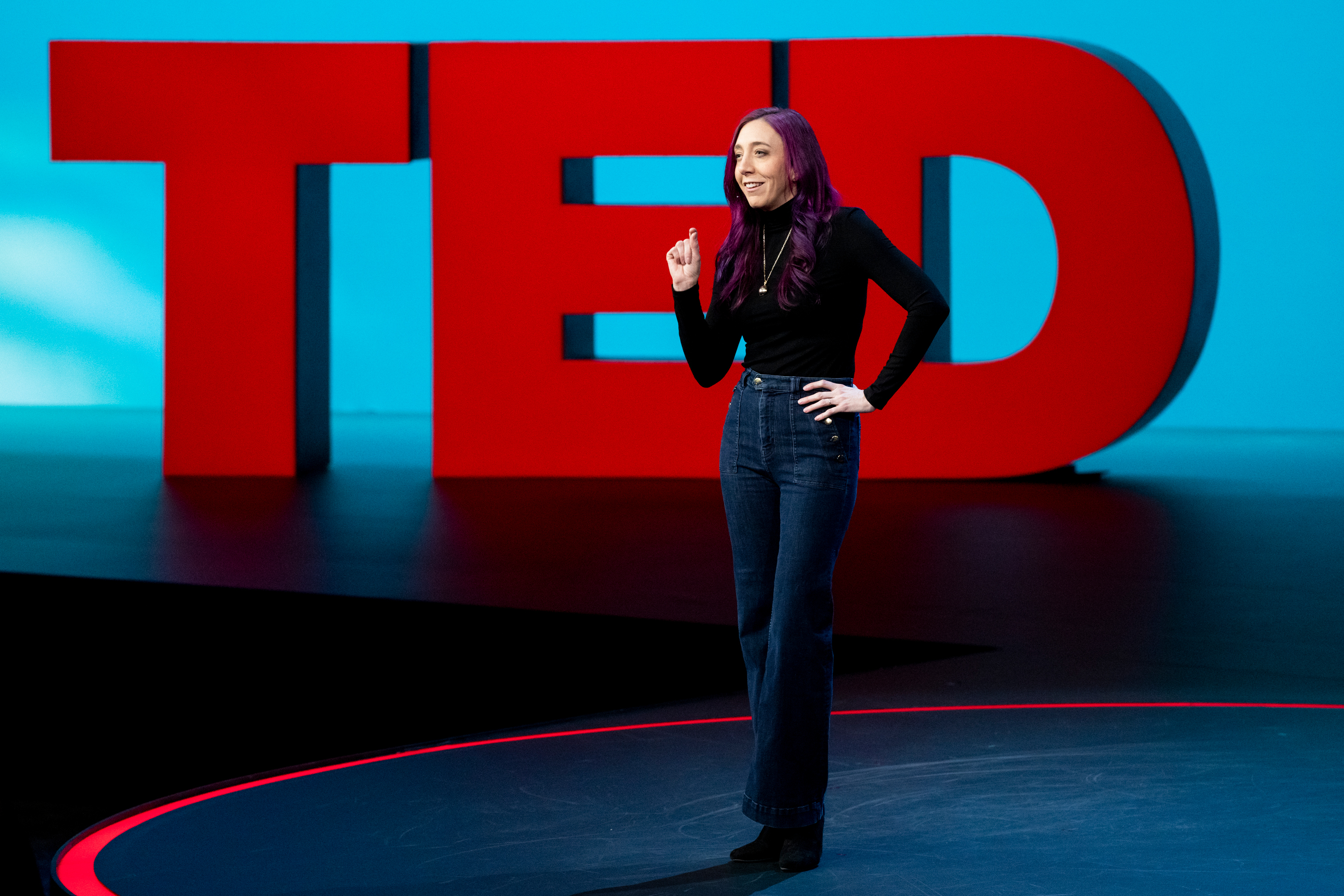
Katherine Mangu-Ward speaks at Session 2 of TED2022: A New Era on April 11, 2022, in Vancouver, BC, Canada. (Photo: Gilberto Tadday / TED)
Katherine Mangu-Ward, libertarian journalist
Big idea: Government meddling makes capitalism less effective.
How? Capitalism is not a designed system; it’s an emergent one, says Katherine Mangu-Ward, editor-in-chief of Reason magazine. Just as random mutations in a species produce successful new traits, “weirdos” with insane-sounding ideas solve problems that push capitalism — and society — forward. Mangu-Ward credits capitalism with humanity’s material progress over the past two centuries; it was free markets, after all, that encouraged and rewarded the risky schemes that led to cheap artificial fertilizers, electric light, vaccines, personal mobile phones and commercial aviation. She admits that capitalism has also produced plenty of bad ideas and failed projects, but she argues that failure is a necessary process of evolution. Big governments tend to disagree with Mangu-Ward and often interfere with the markets to prevent large, powerful corporations from going under. She asks us to reconsider our qualms about failure, corporate death and capitalism, using General Motors (who she thinks should’ve been sold for parts years ago) and Facebook (who craftily shrunk their company to avoid regulation) as examples of companies whose fates could have been decided better by the markets than by government intervention.
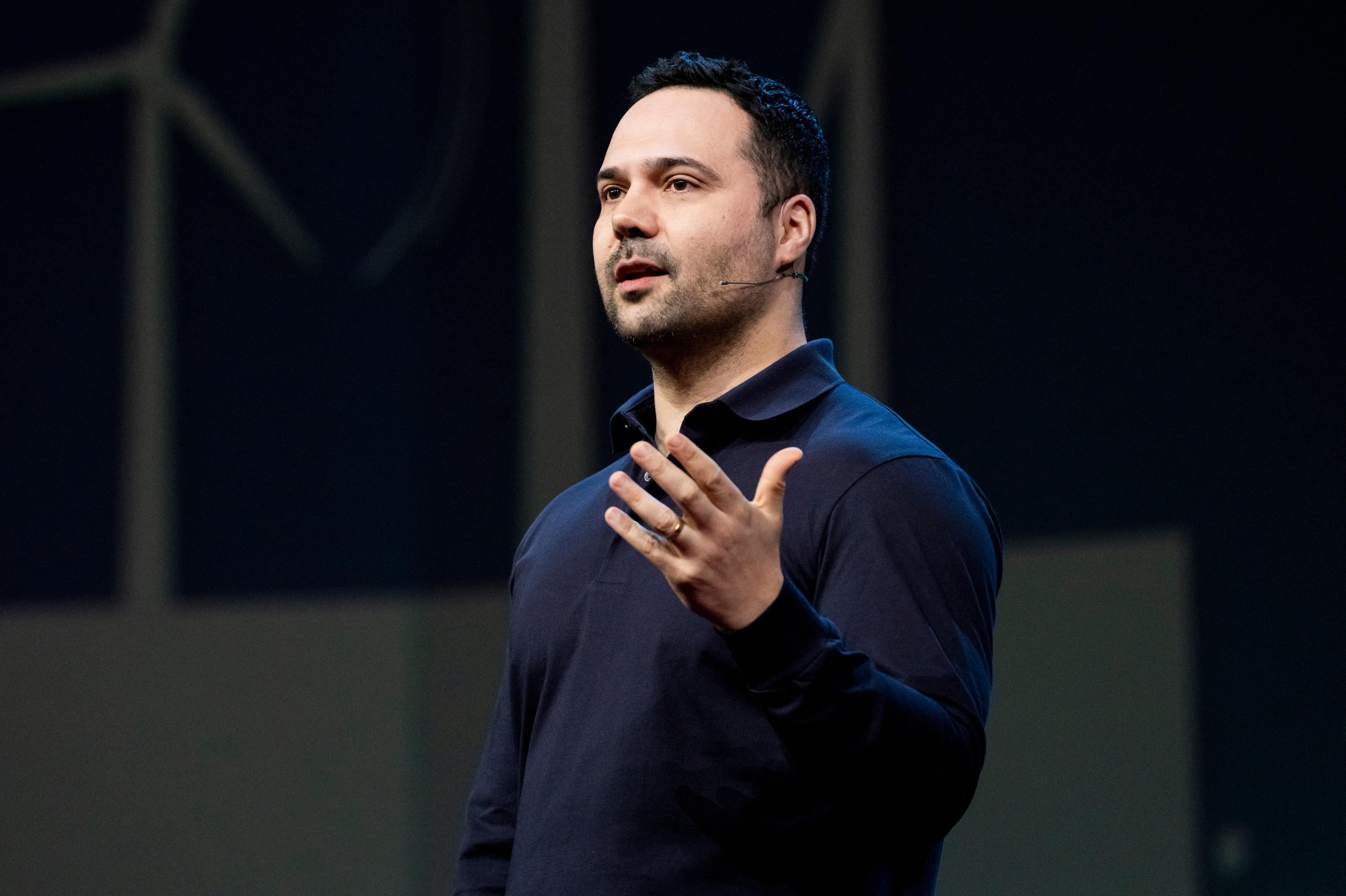
Aaron Bastani speaks at Session 2 of TED2022: A New Era on April 11, 2022, in Vancouver, BC, Canada. (Photo: Gilberto Tadday / TED)
Aaron Bastani, journalist
Big idea: We need state action — specifically universal basic services — to enable our self-determination in the face of technological change.
How? “We live in a world where capitalism has completely prevailed,” says journalist Aaron Bastani. But the current state of economic liberalism just is not working; what we know of as the pursuit of happiness and freedom of self-determination is severely limited for most of the global population. His solution lies in free, universal public services funded through progressive taxation. In the face of dizzying technological change and a worsening climate crisis, Bastani identifies housing, transport, education and health care as the four key areas where governments must install such programs. He makes the case for leveraging the technological revolution to confront global challenges — but only with intervention for the sake of the public good. And he envisions a world after capitalism, with rewilded forests, free schooling and self-driving electric buses. “Liberal ends of self-authorship, of determining how your life should unfold, require socialist means,” he says. “The state must get involved.”
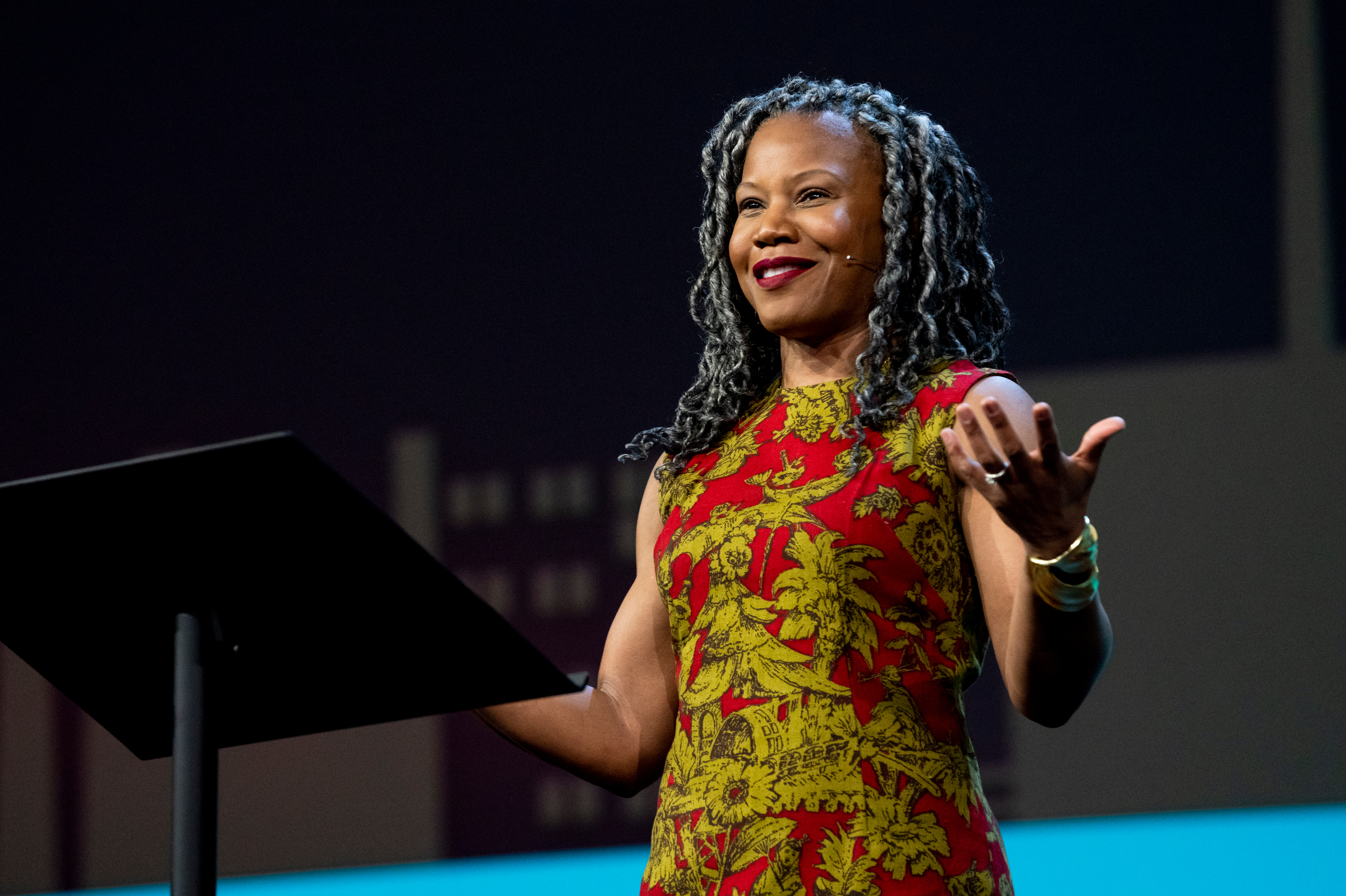
Majora Carter speaks at Session 2 of TED2022: A New Era on April 11, 2022, in Vancouver, BC, Canada. (Photo: Gilberto Tadday / TED)
Majora Carter, urban revitalization strategist
Big idea: Economic growth and development in low-status communities can be enhanced using tools of capitalism, like talent retention, in order to ensure people don’t have to move out of their neighborhoods to live in better ones.
How? In communities like the South Bronx, New York, where urban revitalization strategist Majora Carter grew up, there is a dire need for inclusive local development — a need made clear by the fact that many basic necessities like schools, hospitals and career opportunities are worse in some parts of town than others. Carter explains that the strategies being employed to improve livelihoods in these communities (gentrification and poverty maintenance among them) perpetuate the idea that they either can’t be improved or need outside intervention for any development to occur. She analyzes this dilemma through a historical lens, pointing to the trillion-dollar racial wealth gap in the US that results from the exploitative practices of slavery and the destruction of Black wealth. Under the weight of these trends, many people have left their neighborhoods in search of greener pastures, but it doesn’t have to be this way. Carter believes that through restorative economics, policymakers could encourage more people and talent to stay in the places they call home by building lifestyle infrastructure (think: cafes, bars, restaurants) that fosters positive community interaction, encourages real estate and business ownership and educates property owners on the true value of their assets. “There’s no sense in rebuilding the wheel,” she says. “The same tools of capitalism that were used to build white wealth can be used to build Black wealth.”
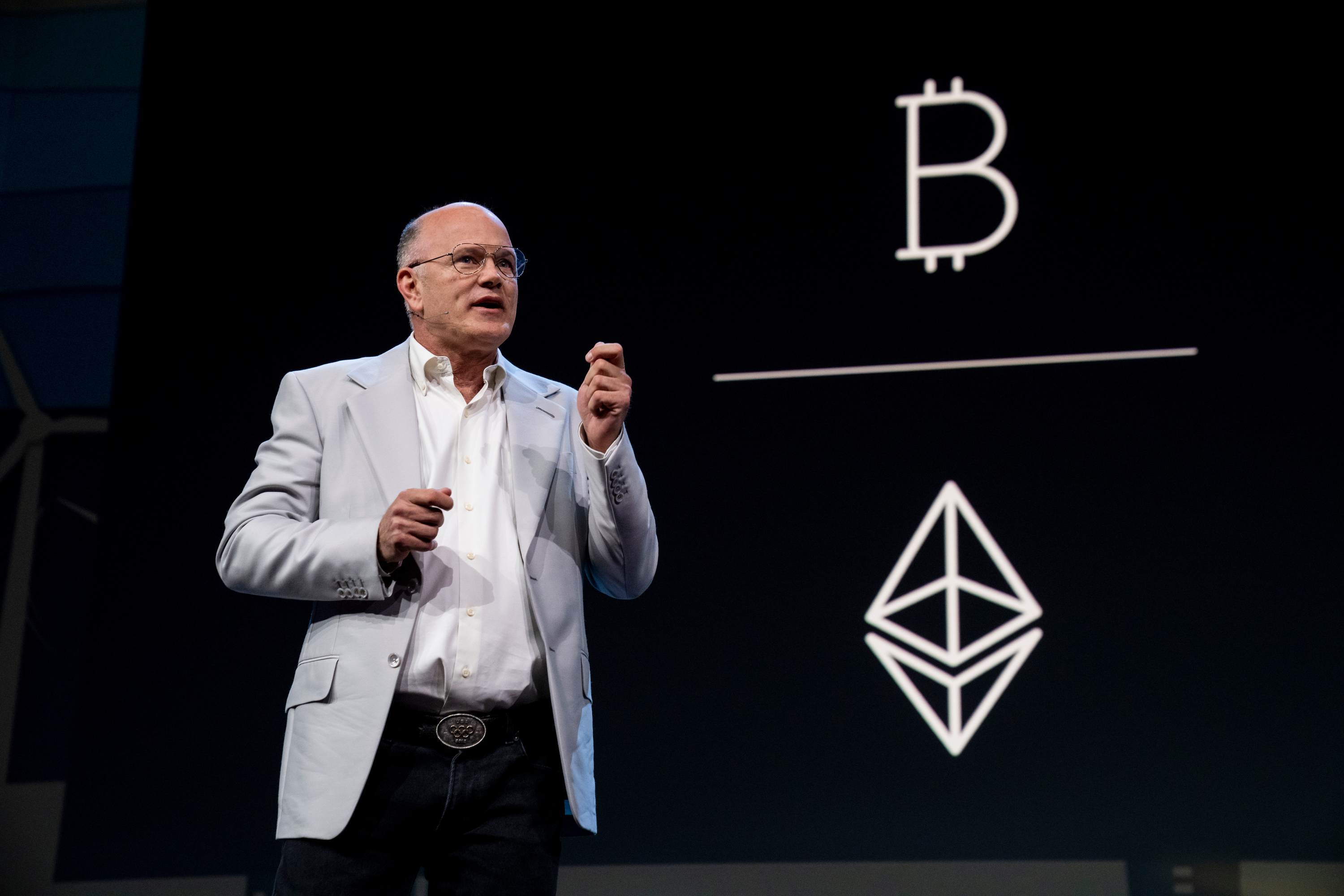
Michael Novogratz speaks at Session 2 of TED2022: A New Era on April 11, 2022, in Vancouver, BC, Canada. (Photo: Gilberto Tadday / TED)
Michael Novogratz, investor
Big idea: Cryptocurrency is a decentralized, transparent revolution that can help restore trust amidst a broken financial system.
How? Since the 2008 financial crash, distrust in the system has grown massively, as once-trusted institutions have become tarnished by their contributions to the climate crisis, inequality and opaque economic markets. Michael Novogratz believes the decentralized, empowering nature of cryptocurrency can restore that lost trust on a global scale. By unlocking access to digital private property, these assets can expand to all markets, transparently and inclusively. NFTs, or non-fungible tokens, can take this radical expansion of value one step further, Novogratz explains, making ownership possible over virtually any property on the web. Artists have used this as a means of explosive creativity, trusting their work cannot be stolen thanks to each piece having its own unique code on the blockchain. Novogratz points to decentralized platforms like Uniswap that are flipping capitalism on its head by redistributing power amongst people, and rewarding them for everything they own, trade and stake. He paints a liberating vision that untethers value from the material world.
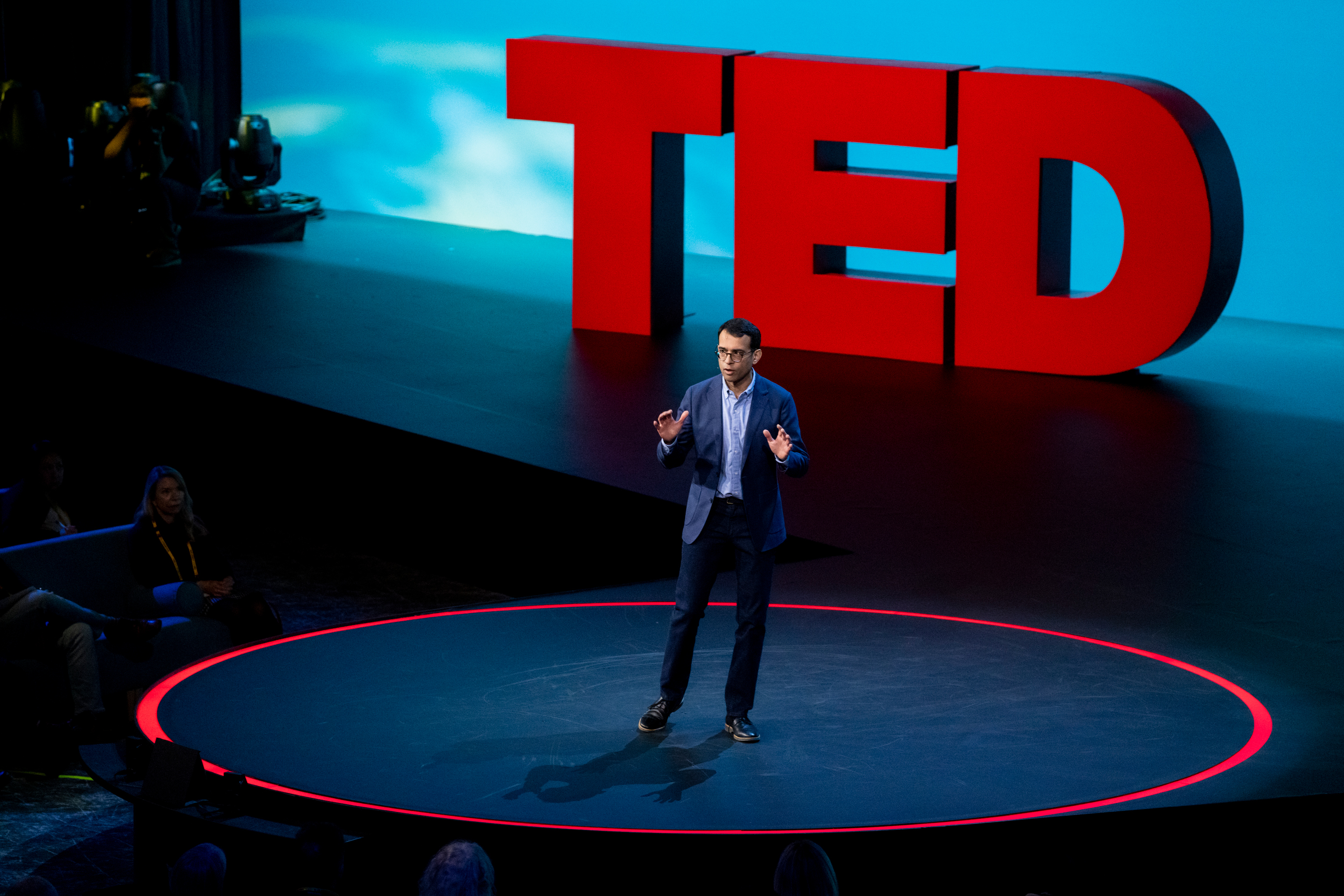
Manish Bhardwaj speaks at Session 2 of TED2022: A New Era on April 11, 2022, in Vancouver, BC, Canada. (Photo: Gilberto Tadday / TED)
Manish Bhardwaj, moral leader
Big idea: In order to undo the damage that capitalism has caused in the world, we need to integrate morality into business frameworks at the foundational level.
How? Capitalist modes of living and commerce have wreaked havoc worldwide, exacerbating oppression and injustice. Though models like stakeholder capitalism seek to rectify these inequities, it simply isn’t enough. Manish Bhardwaj believes we must invest in developing and incorporating moral clarity into our business structures. Moral clarity, he says, is about doing the right thing because it is right, and not out of fear of repercussions or in expectation of a reward. While stakeholder capitalism seeks diverse workplaces for the sake of employee retention, greater profit margins and innovation, moral clarity allows us to see that diverse workplaces are necessary because they are morally just. Importantly, Bhardwaj clarifies that moral clarity is not moral perfection — instead it is an awareness and a willingness to create space for moral language and arguments in business. The good news is that moral clarity works: Bhardwaj’s organization for neonatal and maternal health in rural India was able to cut neonatal mortality rates in half by centering the most vulnerable in all of their work. Though it won’t be easy, moral clarity requires us to shift perspectives: our business goals should never supersede the moral responsibilities we have to each other, ourselves and the world.

Majora Carter speaks at Session 2 of TED2022: A New Era on April 12, 2022 in Vancouver, BC, Canada. (Photo: Bret Hartman / TED)
